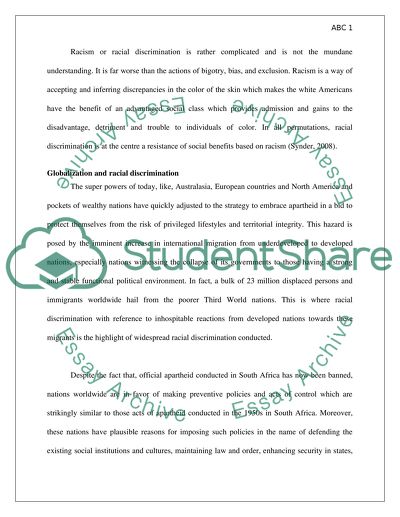Cite this document
(“Racial discrimination Research Paper Example | Topics and Well Written Essays - 2750 words”, n.d.)
Retrieved from https://studentshare.org/english/1398124-racial-discrimination
Retrieved from https://studentshare.org/english/1398124-racial-discrimination
(Racial Discrimination Research Paper Example | Topics and Well Written Essays - 2750 Words)
https://studentshare.org/english/1398124-racial-discrimination.
https://studentshare.org/english/1398124-racial-discrimination.
“Racial Discrimination Research Paper Example | Topics and Well Written Essays - 2750 Words”, n.d. https://studentshare.org/english/1398124-racial-discrimination.


